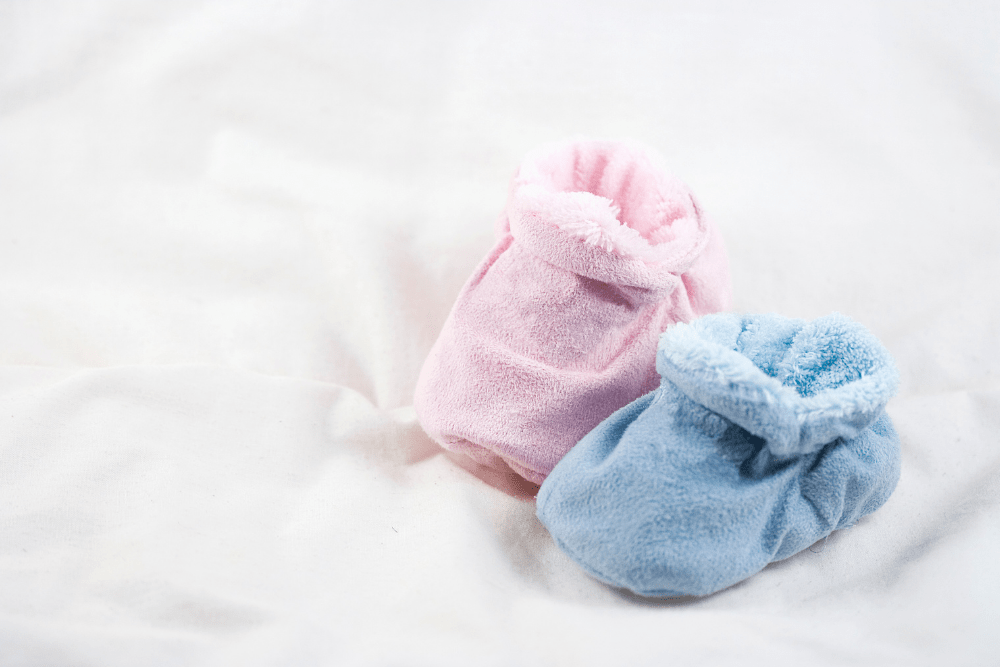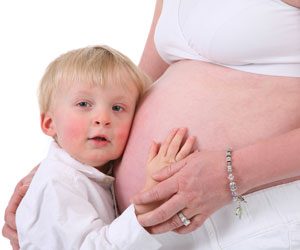
I have always wanted to be a mother. As a child I played with the role, through my adolescence I dreamed of it, and as an adult, I held it as my greatest goal. I had always known, or at least believed, that I would have a son. Fortune tellers in their droves had confirmed it, and neither my realisation that I was lesbian nor a specialist telling me I was infertile, could shake my resolve. I would have a son and I would name him Ethan.
As the years went by and turned into a decade, the little baby boy I had envisioned never arrived. There were babies, many babies, but none stayed very long. I know the gender of only one, a little girl who left at 13 weeks gestation. I named her Annabelle. Regardless of uncertainty, I named my “ungendered” babies with sweet, feminine names. Amy, Temperance, Charlotte… names to be a treasure. More out of self-preservation than true faith, I came to regard these babies as messengers. They were my angels. They reminded me to keep trying. These babies reminded me that my son was still out there somewhere, waiting for the moment that his life could be realised. They were the little girls I was not destined to birth, sisters of the son that I would.
When a baby finally did arrive it was by unconventional means. After so many attempts to have a child, I was desperate. I had been diagnosed with a clotting disorder that can cause miscarriages. The treatment was dangerous and controversial. I felt if I lost another child I would lose myself. With embryos in storage from my last round of IVF, my specialist suggested what was then considered to be a radical alternative. I could transfer an embryo to my partner who could carry my biological child for us. I seized this chance with both hands believing it was my only hope to achieve the dream.
The realisation I had made an error in judgement occurred the night before the transfer. Somehow I knew the pregnancy would take. When I was proven right, I decided that all hope of carrying and birthing my own baby was gone. My son would arrive, birthed by another woman and that would be that. Despite my desperation, I discovered that it was not enough to have a child. It was not even enough that the child was a product of my DNA. I wanted to carry and birth my baby myself. It was my feminine birthright.
The weeks went by and, while my baby grew healthy and well, my emotional conflict grew stronger and stronger. At a point, I don’t recall I began to pray that this child was a girl. Somehow I believed that if my partner was carrying a girl, the chance for me and my son would still exist. At 19 weeks my prayers were answered when the ultrasound technician announced that this baby seemed to be a girl. On 22 October 2004, my daughter was born. It remains one of the most joyous moments of my life. My dream was renewed. My son was still out there waiting for me. This little girl had been sent to ease my suffering heart.
I named her Finlay Genevieve. Even now the name Finlay for a girl still receives raised eyebrows, incorrect notations as ‘male’ in computer systems, and bemused clarifications that she is in fact a girl. Many considered my name choice ‘a gay thing’ – an attempt to flout convention and assert my ‘masculine side’ by forcing my ‘sweet, innocent, little girl’ to bare a man’s name. The truth is I chose a gender-neutral name because, as a woman with a very feminine one, I am well sick of being pre-judged based on my gender.
I have learnt from experience that in the world of business, discrimination against women is alive and well. With a gender-neutral name, I thought, the ‘on paper’ impression will fall to Finlay’s skills, experience and qualifications. My one reservation though was that when grown Finlay might curse me and my feminist ways, wishing she had a ‘girl’s name.’ For this reason, I decided to give her a very feminine middle name – an identity scapegoat.
As Finlay grew so did the hubbub around us. Family and friends were scorned as I resisted their attempts to fill my daughter’s wardrobe with pink and frills. It was wrong, they said, even cruel. I was forcing my opinions upon her, even trying to take away her natural femininity. I stood my ground and as the years went by my baby grew into a little girl who loved dolls and trucks, and liked to play house and climb trees. She could hold her own in an argument and seemed to be a born leader, but at the same time, she developed a depth of understanding of human emotions that many adults don’t possess.
I began to see her as my opus – living proof that when gender stereotypes are resisted, and society’s attempts to enforce them are pushed back, a child can grow into a truly well-rounded individual. She was a child of the future, a future in which gender would be irrelevant. I was almost right. After five years of gender-neutral parenting the true test arrived – school.
By the time Finlay had finished term one of kindergarten, the cracks had begun to show. Uttered unthinkable phrases in my home. Phrases like ‘I can’t wear that it’s blue!’ and ‘That’s a boy’s toy!’ But the worst was yet to come. It arrived in the form of a tearful Finlay coming home from school lamenting her unknown father – a sperm donor identifiable when Fin turns 18. It was not enough to have mothers she said. All the other children had daddies (an exaggeration) and she wanted one too.
We talked for a long time that night about ‘what daddies are’ – what it was about a father that she felt was missing from her life. It wasn’t, we established, having someone capable of using power tools, mowing a lawn or playing soccer. She had mothers that could do all that and more, and companies like ‘Dial-a-Hubby’ do not make their money only from women. Being born male does not ensure a person can build a cupboard any more than being born female ensures you can bake a cake.
We talked about children who grow up adored by one parent alone, and those abused in straight, two-parent households. We talked about cultures in which female children are raised by the women of the family, while male children are raised by the men, and those in which a community of people raise the children together. Next, we talked about the concept of ‘parents’ rather than ‘mothers’ and ‘fathers’ and in the end, I suggested to Finlay that perhaps her conflict had nothing to do with men or women, mothers or fathers.
Perhaps it was not the absence of someone in particular in her life. Perhaps it was purely biology curiosity combined with peer pressure – a need to know where she came from, the other person from whose DNA she was created, combined with a need to fit in rather than stand out. In any case, she being the child of a donor and I being a lesbian meant that Finlay would not grow up with a daddy, and this was something she needed to accept.
Finlay’s resolve came in the form of a prophecy for her own life. She would not be gay, she said. She would marry a man and have children, and together they would be a family. Ellen Degeneres once said that the idea that children of gay families will become gay themselves is ludicrous. After all, her parents were straight, and look how she turned out. I have lived up to her assertion. Here I am, a lesbian, and it seems I have ensured my daughter will be straight!
As Finlay struggled with her need for a father, I struggled with a need to realise the dream of a son. It is ironic that for all my lesbian leaning and feminist parenting, we two women were seeking men. Undaunted by the fact that almost two decades had passed, I continued to try to bring a child into the world myself.
On ANZAC day 2010 I had an embryo transfer. I knew two things that day – that this baby would survive, and that this baby was a girl. This evoked in me a sense of utter terror and confusion. After all, I believed I could not carry girls. Over twenty years I had convinced myself that any girl I carried would die and only a baby boy could survive. I held my sister up as proof, a woman who had two stillborn girls before giving birth to two living boys. How could it be that after all this time my longed-for pregnancy would bring me another daughter?
Despite feeling her feminine self growing inside me I worked hard to convince myself my baby was actually a boy. Looking back I think I needed to do this for my own sanity. After so many losses I needed to believe in myself and my child, and somehow the only way I could do that was to believe in the dream, son and all. At the same time, I began to look at Finlay and a new dream of hers – a dream to have a sister. It would be wonderful, I mused, for her to realise that dream. Perhaps too, having a girl would heal some of the long carried hurt I felt that Finlay had been borne by another woman.
At nineteen weeks my dream was both shattered and reborn. There before me on the screen was a healthy, gorgeous baby. A girl. It relieved my family. After all, how exactly could a single lesbian have raised a son? It would have been wrong, they said. Their God had saved me from me and sent me a child of the gender I was better equipped to raise! I began to muse about the embryos left in storage. I no longer saw them as a chance at a son but as my children. Tiny babies who, if given the chance, might also survive to bring untold joy to my life and this world. I decided that if a boy ever arrived, I would still call him Ethan, to remember the dream that kept my faith alive and brought me Finlay and this new little girl.
On 21 January 2011, five days after my 40th birthday and 20 years after my quest had begun, I gave birth to a beautiful baby girl. I named her Charlie Georgina.
Revised on 7th December 2021


Recent Comments